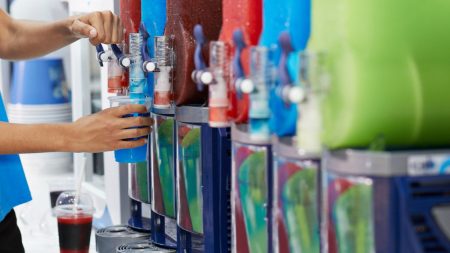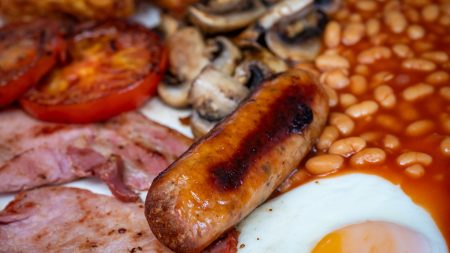The festive season, particularly New Year’s Eve, often involves celebratory drinking, which can lead to the dreaded hangover. This unpleasant after-effect is a consequence of several factors, including dehydration, disrupted sleep, inflammation, and bowel irritation. Alcohol’s diuretic nature depletes essential nutrients and dehydrates the body, resulting in common hangover symptoms like headache, nausea, fatigue, and overall malaise. While greasy food and painkillers are common go-to remedies, natural alternatives exist that can provide relief and speed up recovery. The key to effective hangover recovery lies in replenishing lost nutrients and consuming easily digestible foods.
Several foods and supplements can help alleviate hangover symptoms. Milk thistle, containing silymarin and cynarin, supports liver function by aiding bile production, crucial for toxin elimination. These compounds also alleviate nausea and indigestion by stimulating digestive fluids and reducing stomach inflammation. Pickle juice, rich in electrolytes like sodium, calcium, and potassium, promotes hydration, combating the dehydration caused by alcohol consumption. While water remains the most crucial hydration source, pickle juice offers a supplementary boost of electrolytes.
Familiar breakfast staples like eggs and toast can also contribute to hangover recovery. Eggs contain cysteine, which aids in breaking down acetaldehyde, a toxic compound contributing to hangover symptoms. Wholegrain toast with avocado provides complex carbohydrates and healthy fats, stabilizing blood sugar and offering sustained energy. Bananas and nuts replenish potassium and magnesium, respectively, minerals depleted by alcohol. Plain, live yogurt restores beneficial gut bacteria, while lemon peel, packed with antioxidants like D-limonene and Vitamin C, assists in detoxifying the body.
Herbal teas like ginger and peppermint offer relief from nausea, a common hangover symptom. Ginger calms the digestive tract, easing nausea and vomiting, while peppermint soothes digestive discomfort and bloating. Staying adequately hydrated remains paramount. Drinking plenty of water before bed and upon waking is crucial. Coconut water provides an electrolyte-rich alternative, further restoring mineral balance.
While curing a hangover entirely is impossible once the alcohol has been processed, minimizing its severity is achievable through proactive measures. Staying hydrated is paramount, with alternating alcoholic beverages with water and drinking a large glass before bed. A substantial meal before drinking, rich in protein and healthy fats, slows alcohol absorption. Opting for clear spirits over darker ones and pacing alcohol consumption further mitigates hangover risk. Avoiding sugary mixers and cocktails is also advisable, as sugar exacerbates hangover symptoms. Adequate sleep allows the body to recover, while certain supplements like B vitamins and zinc may also reduce hangover severity. Ultimately, listening to your body and knowing your limits is crucial.
Common hangover cravings, such as greasy foods, caffeine, and “hair of the dog,” can worsen symptoms. Greasy food burdens the digestive system, caffeine dehydrates further, and more alcohol delays recovery. Preparing for a night of drinking is key. Consuming a substantial meal with protein and complex carbohydrates beforehand, alternating alcoholic drinks with water throughout the evening, and having a recovery kit ready (water, electrolyte drinks, easily digestible foods) can significantly reduce the severity of a hangover. While a hangover is often an unavoidable consequence of excessive alcohol consumption, understanding the underlying causes and utilizing natural remedies can significantly alleviate symptoms and promote quicker recovery.











